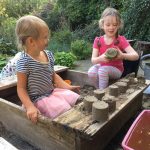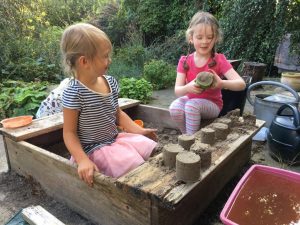
Introduction
If you as adults are finding these times a strain, you can assume its probably worse for the highly sensitive children. Many are feeling the whole COIVD19 saga unfolding but unable to rationalise or put words to the experience. The tension children are picking up may play out in many ways. It’s very common for there to be meltdowns over seemingly unrelated minor events. Disturbed sleep, heightened clinginess and anxiety, and physical symptoms like stomach cramps, headaches, asthma, and diarrhea may also occur. In this article we will look at each aspect to find practical solutions to minimise disruption to your child and preserve your sanity. We want you as the parent to be able to cope whilst you maximise your child’s resilience.
The key factor is YOU the parent
Probably the most important factor for your child is how you as parents are handling the whole situation. Children’s nervous systems mirror their parent’s in the same way that the bottom guitar string resonates if you pluck the top one. So getting your own fear and stress under control has to be the first priority. This is easier said than done especially if you are a highly sensitive parent – but there are ways. Some basic support mechanisms are:
- slow your day down, take more breaks
- make sure you get physical exercise because moving the body releases emotion and prevents traumatisation
- breathe consciously as much as you can – both in but also out – the outbreath is crucial for releasing fear and anxiety
- Limit social media and don’t watch the news at all. If you have to, do it with headphones so your child doesn’t pick up the negativity from the TV
- Limit coffee and drink herbal teas; make sure you eat regular meals so your body doesn’t go into low blood sugar panic mode
- be aware not to discuss political events or scientific theories in front of your child because they will pick up on the intense emotion of the times immediately and feel out of sorts.
- The good news is that if you can remain relatively normal in your mood and activities, you create a bubble of protection from world events for your child, at least whilst you are inside your home. This will give them a foundation to rest and recover from whatever else they experience when they go out. This is absolutely essential.
Your own mindset is crucial
I can’t stress enough that whatever your mindset is regarding the virus and the political measures will directly affect your child’s mental and emotional health. So work on keeping the fear out, on keeping yourself centred and positive and being an active creative agent in your own life. Whatever you can do – be it plant vegetables, volunteer to support others, clean, decorate, plan or communicate please do it. The stronger and more resilient you get the easier things will be for your child.
Dealing with the global emotion
The general underlying tension outside of your home that is also affecting many adults will not go unfelt by your children. I’m talking about the global or even country energetic field of which we all form a part. The “alert” state of being hypervigilant that most people initially experienced for a few weeks happens when the parasympathetic nervous system (fight or flight) is aroused and can’t discharge. This is exhausting and many of us spent weeks without proper sleep or digestion.
Highly sensitive adults and children will pick up on this vibe and experience it as a real threat in their environment without being able to see what it is. If your child is old enough (probably 4-5 at least) then explaining the fear and tension that a lot of people are feeling about not being able to work, about changes happening may help your child to locate the fear as outside of themselves and put it aside. Making it separate and tangible can prevent trauma (overload) and settle the system.
The importance of Touch
Physical touch – hugging, foot massage, gentle shoulder rubs – whatever normally soothes your child – can be very helpful at regular intervals. Frightened children tend to dissociate and lose touch with their bodies, and so digestion stops, they get stomach cramps and also knock into things and have more accidents.
Common Anxiety Symptoms
If you see your child not eating normally, not sleeping and expressing sysmptoms of anxiety like diarrhea (fear/terror), stomach cramps, broken or disturbed sleep (nightmares) please check your own state first. The most important thing you can do for your child is be calm and grounded yourself. The next step is to find ways to help your child calm down again.
Relaxation and Emotional Regulation
Most parents generally notice as they go along what helps their children settle and relax. In case you are stuck for ideas, everything that promotes a sense of safety and wellbeing in the body helps. Keep things slow, low key and gentle… A warm bath with lavender oil or Epsom salts, reading stories by the fire, making fairy cakes together…
If your child is in a real state an activity like walking barefoot on the grass together may help. You can suggest that your child imagines a nose on the sole of each foot that is smelling the earth as they take each step. Walk together slowly, maybe holding hands, and as you sense the soles of your feet encourage your child to sense theirs using the nose… They usually love this and it gets them reconnected with their body fast. Be creative – ask if they can smell the daisies, the grass, the earth, the worms, etc. Notice if they are breathing. If not, do some big breaths into your lower belly together whilst standing on the grass.
Symptoms of fear
If your child has persistent stomach cramps, headaches, diarrhea or develops asthma this is not necessarily anything medical to worry about. (Although do see a doctor if you suspect your child is ill). These can all be and are actually common physical manifestations of fear which highly sensitive children are especially prone to. In this case it might be helpful to see a child craniosacral therapist. They should be able to help relax the connective tissue in the abdomen/neck and stimulate the vagus nerve and sympathetic nervous system. If your child is hypersensitive or aroused most practitioners will be able to work without even touching your child. It’s a last resort but it can save you a lot of stress and worry.
How to deal with Clinginess
Has your child recently stopped being able to play on their own even for short periods, or are they demanding to sleep in your bed again? If you’re despairing that your child seems to have regressed developmentally since this all began your not alone. However please try to understand that this is a normal response. It happens when children are stressed, and it’s unlikely to be permanent. It’s just a sign of distress. Extra clinginess and not wanting to let their preferred adult out of sight would also be expected responses. Why? Because when you are fundamentally scared you want to cling onto whatever security you have at all costs. Your child is asking to feel all of you present with them so that they can feel reassured on a base survival level that someone is there for them. They need your full attention at this point.
It is incredibly challenging to have your child behave like a cling-on when they were previously at least a little independent. But if you push them away you will make things worse. You will leave a very frightened little person totally alone which I know is not what any parent does intentionally. Acceptance and reassurance would be more helpful responses. When you really can’t cope any more see if you can stay physically present but disconnect emotionally. That way you can take some space for yourself. Supplements such as magnesium or melatonin may help your child relax generally and also sleep at night. Sleep is so important for HSCs overall functioning and mood…
And the good news is…
Many highly sensitive children are actually thriving during this time of staying at home. Right now they are not having to deal with overwhelm at school and learning things that they don’t want to. So on the bright side, this can also be a great time for your child to develop a stronger sense of self and to find their own rhythm. Being creative and active creates a sense of power and agency. This minimises the risk of trauma and feelings of powerlessness that are so prevalent right now.
How can you help generate a positive experience for your child? Even setting daily tasks for help around the house like watering plants, clearing lego, making beds can serve this purpose. HS children love nature and caring for living things. You can plant seeds, grow tomatoes and basil for your windowsill, or even start an allotment. Caring for pets (and they don’t have to be your own) and doing errands for old people who need help right now are also activities that hs children can find a lot of calm and purpose in.
Conclusion
This epidemic is providing a pause. This is actually an incredibly fertile time for highly sensitive people of all ages. It allows us to be able to come back to the basics of nature, growing food and tending plants and the living environment. This can be a reset and foundation for all future activity. It also gives a good foundation for living at our own pace, and within one’s own optimal activity/rest/nutrition/social requirements. There is much less pressure from what is considered “normal” or social.
So whatever problems you encounter in your child right now, try to see them as opportunities for bringing your child right into their own centre of optimal functioning, and also as a strengthening of your relationship with them as a parent. If you have any more specific questions about your child or would like to talk about your own emotional experiences please get in touch. I’d be happy to support you at this time.
© Mira Watson. Please feel free to share the text but always give due credit to the author.



{ 1 comment… read it below or add one }
really useful articke for me at the momet, thanks.